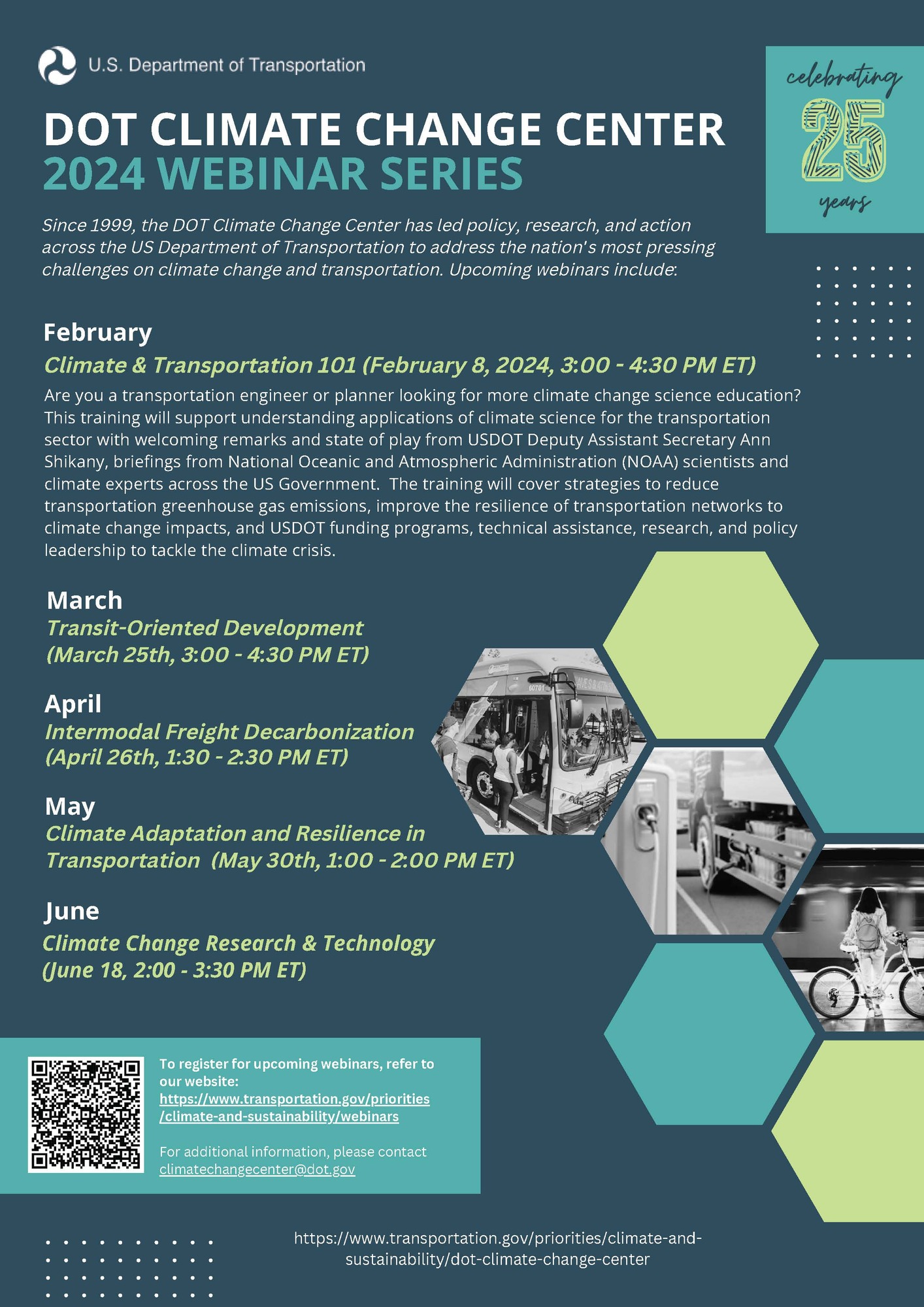Tribal Clean Transportation:
Tribal Clean Transportation Webinars & Roundtables
Understanding and Addressing Range Anxiety Roundtable
Webinar Video:
Video.
Video.
Environmental Justice Thriving Communities Technical Assistance Centers (EJ TCTACs)
Webinar Video:
Video.
Presentation:
PDF Slides.
Speakers:
Cara Corbin, Senior Community Program Coordinator, ITEP Tribes and Climate Change Program, Cara.Corbin@nau.edu, 928-523-3754.
Kieren Daley Laursen, Senior Community Program Coordinator, ITEP Tribes and Climate Change Program, Kieren.Daley-Laursen@nau.edu.
Resources:
ITEP is a part of two TCTACs:
Talk to an expert/Electric School Bus Initiative: Office Hours: https://electricschoolbusinitiative.org/talk-expert
Video.
Presentation:
PDF Slides.
Speakers:
Cara Corbin, Senior Community Program Coordinator, ITEP Tribes and Climate Change Program, Cara.Corbin@nau.edu, 928-523-3754.
Kieren Daley Laursen, Senior Community Program Coordinator, ITEP Tribes and Climate Change Program, Kieren.Daley-Laursen@nau.edu.
Resources:
ITEP is a part of two TCTACs:
- Region 9 TCTAC led by San Diego State University (SDSU: Center for Community Energy and Environmental Justice: https://cceej.sdsu.edu/
- National TCTAC led by ICMA: https://tctac.icma.org/
Talk to an expert/Electric School Bus Initiative: Office Hours: https://electricschoolbusinitiative.org/talk-expert
USEPA
Presentation:
-
USDA Higher Blends Infrastructure Incentive Program: PDF Slides
- https://www.rd.usda.gov/hbiip
- Jeff Carpenter, Higher Blends Infrastructure Incentive Program (HBIIP) Manager, Rural Development, United States Department of Agriculture (jeff.carpenter@usda.gov)
-
USEPA Diesel Emission Reduction Act: PDF Slides
- https://www.epa.gov/dera
- Lucita Valiere, DERA Tribal Lead, U.S. EPA Office of Transportation and Air Quality (Valiere.lucita@epa.gov)
-
USEPA Clean School Bus Rebates Program: PDF Slides
- https://www.epa.gov/cleanschoolbus/clean-school-bus-program-rebates
- Clean School Bus Team (cleanschoolbus@epa.gov)
Tribal EV Charging Station Projects Roundtable
Webinar Video:
Video.
Video.
ITEP’s Tribal Clean Transportation Bi-Monthly Roundtable
Webinar Video:
Available Soon!
Available Soon!
ITEP’s Tribal Clean Transportation Bi-Monthly Roundtable
Webinar Video:
Video.
Presenters & Slide Decks:
Jim Jensen & Ryan Tsingine, Tribal Green Transportation Project
Alyssa Curan & Lydia Freehafer, World Resources Institute
Amir Razi, Zero Impact Solutions
Resources
2024 Green Transportation Summit & Expo (Tribal discount code GTSE TA24)
Video.
Presenters & Slide Decks:
Jim Jensen & Ryan Tsingine, Tribal Green Transportation Project
Alyssa Curan & Lydia Freehafer, World Resources Institute
Amir Razi, Zero Impact Solutions
Resources
2024 Green Transportation Summit & Expo (Tribal discount code GTSE TA24)
Webinar agenda:
Online Bi-Monthly Tribal Clean Energy Roundtable: Health Benefits of Clean Transportation in Tribal Communities (every other month)
Hosted by the Institute for Tribal Environmental Professionals (ITEP), this roundtable brings together Tribal and Indigenous leaders, environmental experts, and community advocates to discuss the intersection of clean transportation, air quality, and community health.
Transportation is one of the largest contributors to air pollution, which disproportionately affects BIPOC and frontline communities. As Tribes consider adopting electric vehicles (EVs) and other clean transportation technologies, it is essential to center wellness, justice, and data-driven approaches in the transition.
This session will explore strategies for reducing transportation-related air pollution, improving health outcomes through clean mobility, and ensuring that EV adoption does not unintentionally burden marginalized communities. Panelists will also discuss tools and approaches for monitoring emissions and evaluating the health impacts of clean transportation projects in Tribal contexts.
Presenters:
Bob Blake: Robert Blake is the owner of Solar Bear, pronounced Gizis-o-makwa in Ojibwe, a solar installation company located in Minneapolis, Minnesota. Also, Robert is the executive director of Native Sun Community Power Development, a non-profit organization located in Minneapolis. Robert is a Tribal citizen of the Red Lake Nation. His passion is spreading the word about renewable energy through communication, cooperation, and collaboration.
Shasta Gaughen: As the Pala Tribe’s Environmental Department’s director and Tribal Historic Preservation Officer (THPO), Shasta oversees the operation of the entire department. Her job is to make sure that Pala’s environment, both natural and cultural, is protected. She also ensures a continuous source of funding for the department through grants and partnerships.
Who Should Attend:
This webinar is intended for Tribal leaders, environmental professionals, natural resource managers, and anyone interested in the future of transportation on Tribal lands.
Please direct any questions to:
Kieren Daley-Laursen, ITEP, Kieren.DaleyLaursen@nau.edu
Taryn Bell, ITEP, Taryn.Bell@nau.edu
Online Bi-Monthly Tribal Clean Energy Roundtable: Health Benefits of Clean Transportation in Tribal Communities (every other month)
Hosted by the Institute for Tribal Environmental Professionals (ITEP), this roundtable brings together Tribal and Indigenous leaders, environmental experts, and community advocates to discuss the intersection of clean transportation, air quality, and community health.
Transportation is one of the largest contributors to air pollution, which disproportionately affects BIPOC and frontline communities. As Tribes consider adopting electric vehicles (EVs) and other clean transportation technologies, it is essential to center wellness, justice, and data-driven approaches in the transition.
This session will explore strategies for reducing transportation-related air pollution, improving health outcomes through clean mobility, and ensuring that EV adoption does not unintentionally burden marginalized communities. Panelists will also discuss tools and approaches for monitoring emissions and evaluating the health impacts of clean transportation projects in Tribal contexts.
Presenters:
Bob Blake: Robert Blake is the owner of Solar Bear, pronounced Gizis-o-makwa in Ojibwe, a solar installation company located in Minneapolis, Minnesota. Also, Robert is the executive director of Native Sun Community Power Development, a non-profit organization located in Minneapolis. Robert is a Tribal citizen of the Red Lake Nation. His passion is spreading the word about renewable energy through communication, cooperation, and collaboration.
Shasta Gaughen: As the Pala Tribe’s Environmental Department’s director and Tribal Historic Preservation Officer (THPO), Shasta oversees the operation of the entire department. Her job is to make sure that Pala’s environment, both natural and cultural, is protected. She also ensures a continuous source of funding for the department through grants and partnerships.
Who Should Attend:
This webinar is intended for Tribal leaders, environmental professionals, natural resource managers, and anyone interested in the future of transportation on Tribal lands.
Please direct any questions to:
Kieren Daley-Laursen, ITEP, Kieren.DaleyLaursen@nau.edu
Taryn Bell, ITEP, Taryn.Bell@nau.edu
For more information please contact:
TCTP@nau.edu
TCTP@nau.edu


